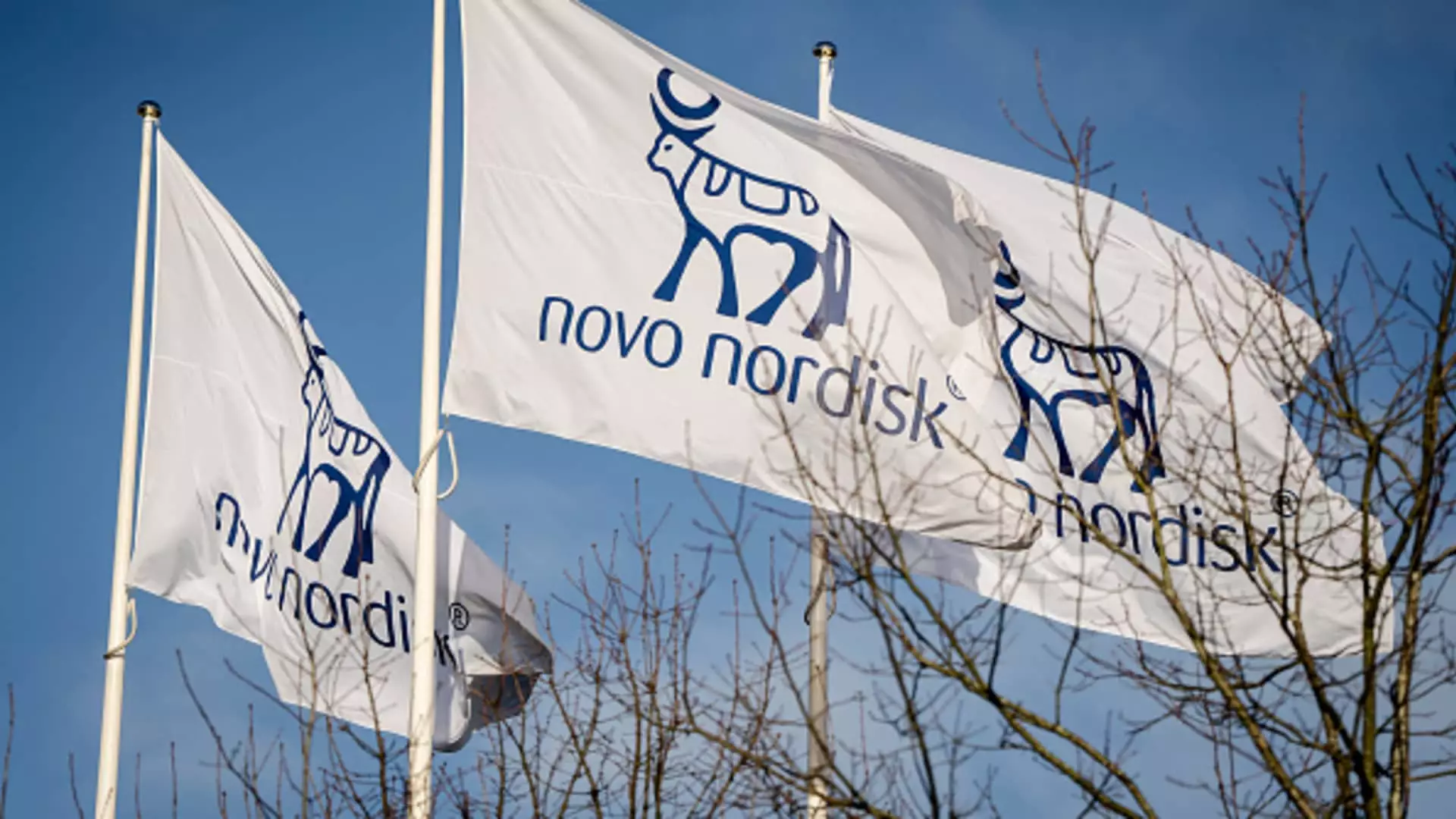In the sprawling landscape of diabetes medication, Novo Nordisk’s Rybelsus has emerged as a remarkable beacon of hope for patients navigating not only diabetes but also the significant cardiovascular risks that accompany it. Recently unveiled results from a comprehensive late-stage trial showcased that this oral medication yielded a notable decrease in cardiovascular events, effectively lowering the risk of cardiovascular-related fatalities, heart attacks, and strokes by 14% when compared to its placebo counterpart. This groundbreaking development stems from a study that followed over 9,600 patients over an average time span of nearly four years. It’s a shift that not only provides new options for treatment but also reshapes the landscape of patient care.
The Growing Need for Oral Medications
One of the most compelling aspects of Rybelsus is its adaptability to patient preferences. While injections like Ozempic have paved the way for effective diabetes management, the anxiety and aversion many experience towards needles is a significant barrier to compliance. Rybelsus counters this fear by offering an oral alternative, thus facilitating a more comprehensive approach to treatment. In a world where patient adherence is crucial to successful outcomes, the ability to present a pill option stands as a progressive leap, exemplifying how drugmakers must evolve to meet patient needs.
The Science Behind the Success
The pivotal findings, publicly shared during the American College of Cardiology’s Annual Scientific Session, demonstrated that Rybelsus did not just lower these risks but did so while integrating seamlessly into patients’ existing regimens. Remarkably, the trial participants largely consisted of individuals over 50 years old—an age group particularly susceptible to the cocktail of diabetes and cardiovascular challenges. The evidence backing Rybelsus is aligned with findings from previous trials involving injectable GLP-1 medications, ensuring that this isn’t an isolated phenomenon but part of a broader, scientifically verified narrative.
The intricacies of how Rybelsus works are equally impressive. By mimicking gut hormones, it capitalizes on biological mechanisms to regulate blood sugar and simultaneously address appetite control, all while exhibiting anti-inflammatory properties. The specifics of its action are vital in a treatment landscape where complex biologics need to work in tandem to deliver optimal results. If Rybelsus proves to be as effective in the long run as the initial findings suggest, its place could potentially overshadow its injectable cousins.
Patient Groups and Their Needs
It’s crucial to consider the diverse patient demographics that can benefit from Rybelsus. Age, gender, and pre-existing conditions were effectively managed throughout the trial, with results consistent across subgroups. This level of detail provides reassurance that the medication can serve a broad array of diabetes patients. Notably, almost half of the trial’s participants were on SGLT2 inhibitors—another class of diabetes medication, demonstrating Rybelsus’ compatibility with established treatment protocols.
While the results are promising, the trial’s design primarily focused on cardiovascular benefits rather than impacts on kidney function, an essential aspect of diabetes management. The fact that there was no significant difference in kidney outcomes invites scrutiny, yet one cannot ignore that Rybelsus is being explored in the same realm as Ozempic, which already holds approval for treating chronic kidney disease related to diabetes. This potential crossover may create pathways for even more comprehensive treatment options in the future.
Side Effects and Patient Experience
Like any medication, Rybelsus does carry its share of side effects, the most commonly reported being gastrointestinal issues—nausea, diarrhea, and constipation. While such adverse effects could deter some, the trial found that most participants managed to continue their treatment without discontinuation, highlighting a resilient patient experience. Such endurance signifies that for many, the benefits far outweigh the drawbacks, particularly for those keen on reducing cardiovascular risks.
It’s essential to engage patients in discussions around these side effects, arming them with knowledge and strategies for navigating them. Patient education should be an integrated component of treatment introductions for medications like Rybelsus, as informed patients are more likely to commit to regimes and realize the drug’s full potential.
Rybelsus is not just another diabetes medication; it symbolizes a progressive turn in treating a complex landscape of health challenges associated with diabetes. Offering cardiovascular benefits in an accessible oral format sets a new paradigm for patient-centric care, and as ongoing research unfolds, it strongly suggests that Novo Nordisk will continue to enhance the quality of life for countless individuals grappling with these chronic health issues. However, as with any groundbreaking innovation, a healthy skepticism and careful monitoring will be key to realizing its full benefits, ensuring that it doesn’t merely become another fleeting trend in the healthcare industry.


Leave a Reply